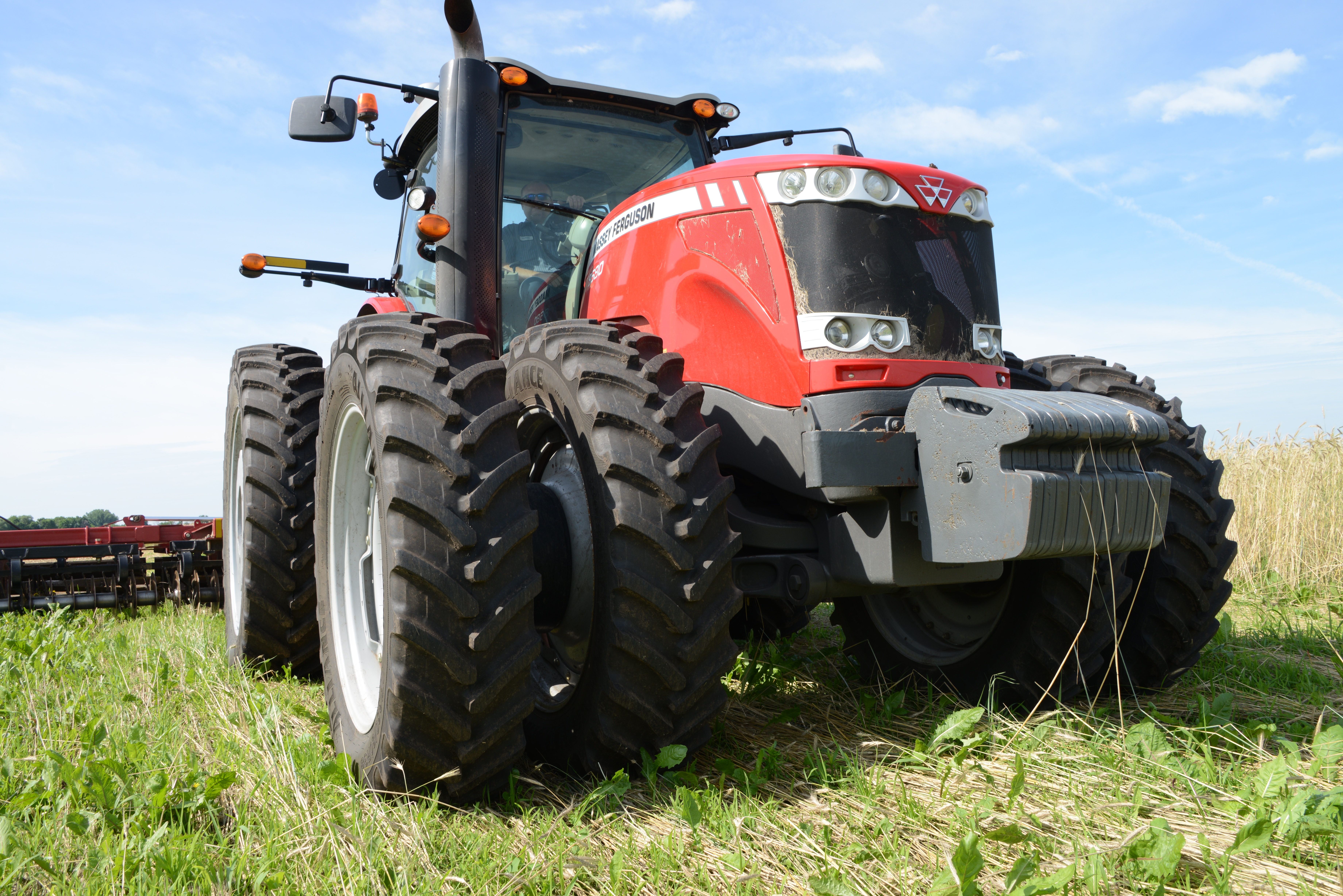Since the development and introduction of IF, then VF, tire technology nearly a decade ago, more and more farmers have been using them as a way to offset withering profits caused by low commodity prices and increasing input costs. Farmers fighting against tighter profit margins can increase their yields with high-tech tires like our AgriFlex line of IF/VF tires, and now the question begs to be asked: are IF/VF the future of farm tires?

Standard Radial vs. IF/VF Tires
A standard radial is built with layers of rubber-coated fabric (little-known fact: many of our competitors use rayon as a fabric instead of polyester because it’s less expensive, even though rayon can lead to “flat spotting”—we only uses polyester). These plies are positioned side by side from the center of the tire, with additional material added to the top of the tire to reinforce the tread.
One of the most basic differences between IF/VF and standard radial tires is that the plies of an IF/VF run from the bead area to the tread area and fold over—covering the sidewall twice—creating a double layer of body plies in the sidewall. This creates a much stronger tire that flexes at the sidewall, rather than at the bead, and is capable of carrying more weight at lower air pressures.
Steeling the Show
Radials have built their reputation on providing superior traction, better fuel economy, a more comfortable ride, and reduced soil compaction—and IF/VF tires take the gains to another level. The performance of our AgriFlex IF/VF tires is further improved thanks to the flat, even footprint provided by the steel belts found in all of our AgriFlex offerings.
Put Your Best Foot(print) Forward
The need to increase per-acre yields, support larger and more powerful equipment, transport heavier loads, and a growing respect for the importance of healthy, well-structured soils all point to IF/VF tires as an indispensable investment for every machine on the farm. IF-rated tires are able to carry up to 20% more weight with the same inflation pressure as a standard radial, and VF-rated tires increase that advantage to 40%. Alternatively, IF tires can carry an identical load as a standard radial while operating at 20% less tire pressure, and VF tires push that number to 40%.
Because IF/VF tires, like our AgriFlex line, can operate at a lower inflation pressure, they produce a larger footprint, which distributes the weight of farm machinery over a greater area. This reduces ground pressure caused by farm equipment, minimizes soil compaction, and reduces rutting and pooling.
The Future of the Farm
Looking toward the future, the use of IF/VF tires will continue to rise for the same reasons radials have increased in popularity—their ability to offer a huge improvement in performance for a relatively small investment. Making the decision to go IF/VF is made even easier when you consider that switching to IF/VF tires is a simple one-for-one swap that doesn’t require any retrofitting. In fact, in many cases the existing rims can be used when changing from traditional radials to IF/VF tires.
Taking on Tracks
Despite the common belief that tracks cause less compaction than tires, research done by Ohio State University shows that properly inflated tires will perform as well, if not better than tracks. Another advantage tires offer over tracks is that they evenly distribute the weight of the machines, whereas tracks can produce high-pressure spots under their idlers and dollies. Also, unlike tracks, which can require extensive undercarriage maintenance, only routinely checking and maintaining proper air pressure is needed to maximize an IF/VF tire’s performance.
With the introduction of our Alliance AgriFlex 389 fast flotation tire, farmers can extend the benefits of IF/VF that they’ve enjoyed on their tractors to also include implements, grain carts, and other equipment. That eliminates the frustration of protecting soils from compaction with great IF/VF tires on the tractor, only to have to compact them with conventional, high-pressure tires on heavy towed equipment or semis.
We believe IF/VF tires are the future; because of this, our AgriFlex line of IF/VF tires has a low-pressure solution for every application on the farm, and we will continue to expand our offerings to address new issues as they arise.
To learn more about our industry leading line of steel-belted AgriFlex IF/VF tires, contact your local dealer today!


